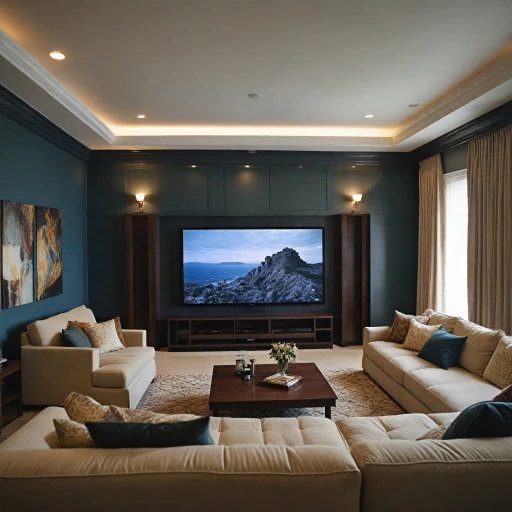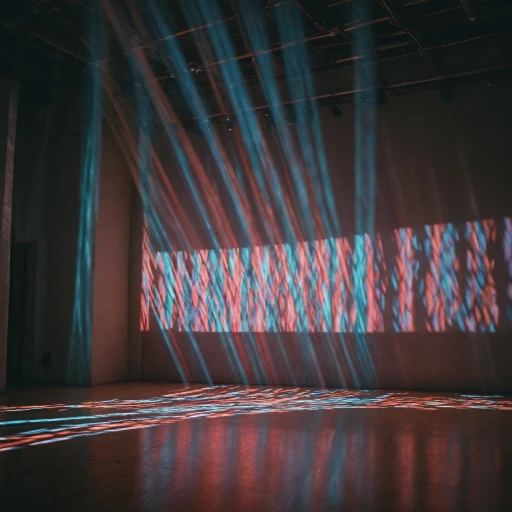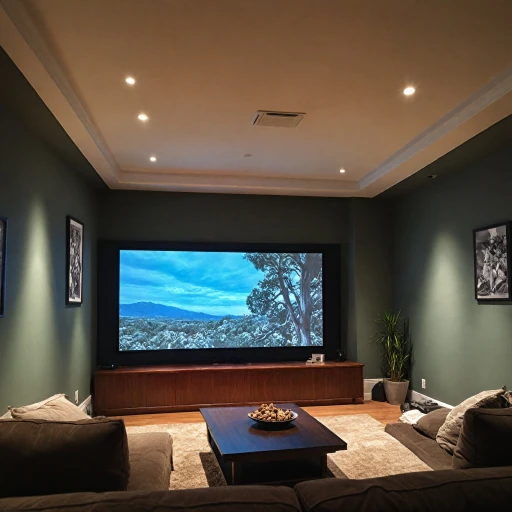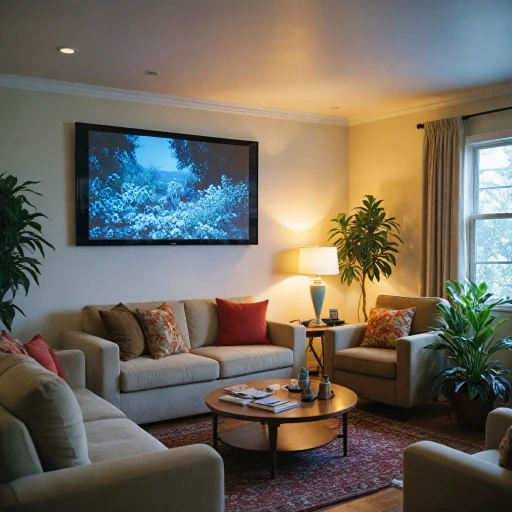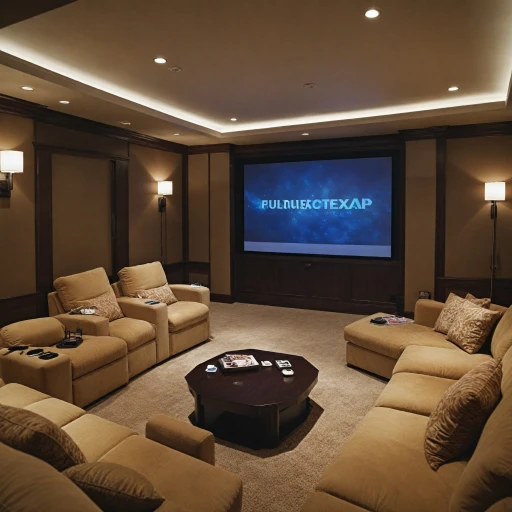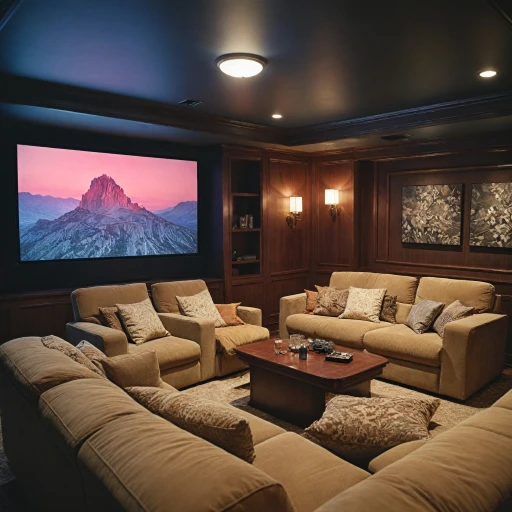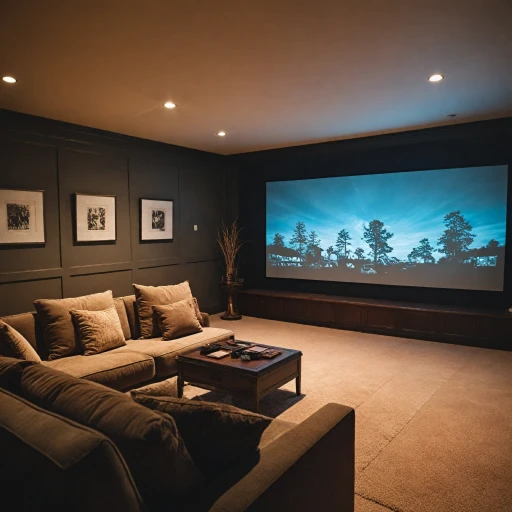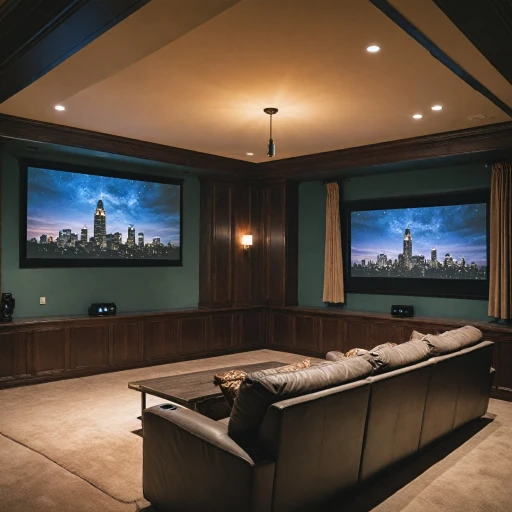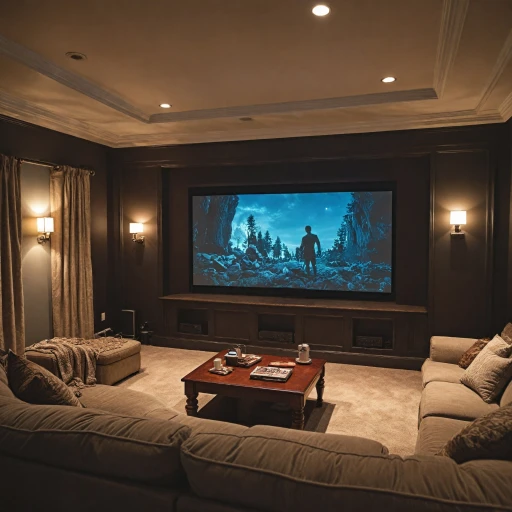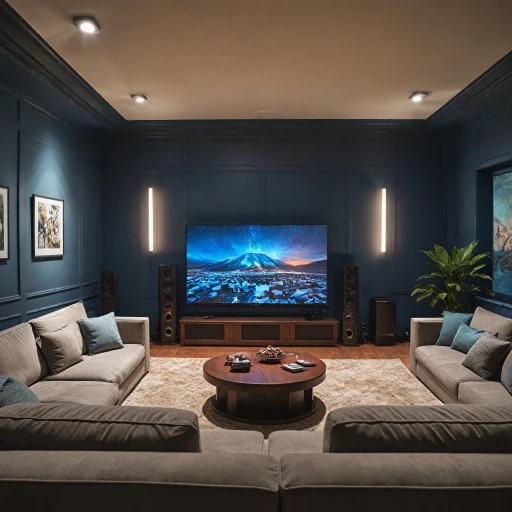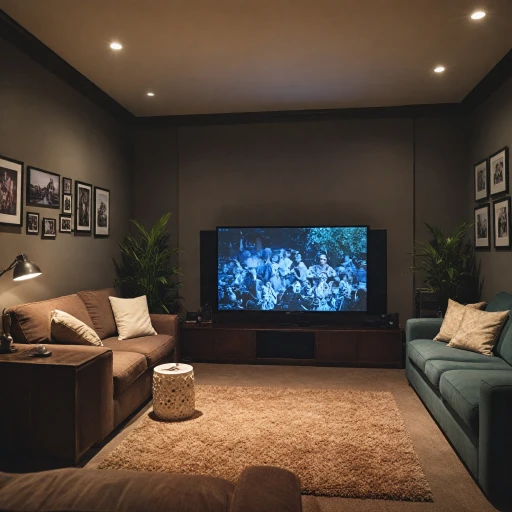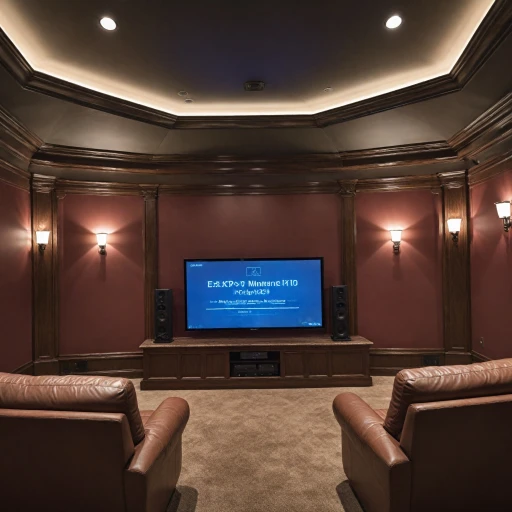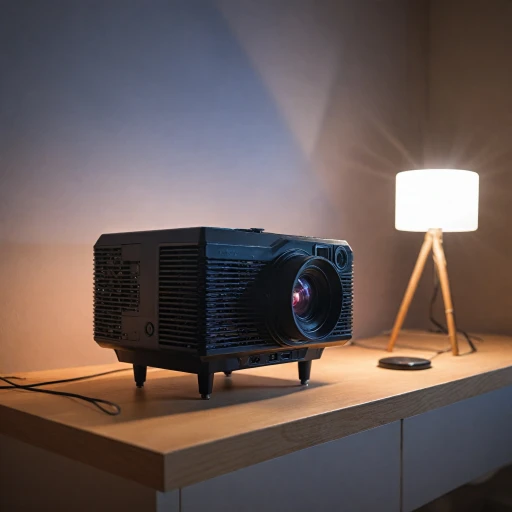
Understanding Gaming Projector Basics
What Makes a Projector Suitable for Gaming?
For gaming enthusiasts, finding the right projector is essential to ensure an unbeatable gaming experience. It's not just about picking any projector; it's about selecting one tailored for gaming. Here’s what you need to know:
A gaming projector must have the critical attributes that separate a good experience from a great one. Understanding these basics will be instrumental in making a wise decision when you're in the market for a new projector. Features such as input lag, refresh rate, and brightness play crucial roles.
Brightness and Clarity
The light source, measured in ansi lumens, determines how bright the image will be. Projectors with higher lumens are advantageous, especially in rooms with ambient light. For gamers, a bright projector like models from the Epson cinema series or the XGimi Horizon ensures your gaming project's image is vivid and clear regardless of your room's lighting conditions.
Colors and Contrast
Ensuring your projector has a wide color gamut is equally essential. Models from brands like BenQ offer rich colors which can enhance the quality of images and improve your gaming experience. Coupled with HDR support, projectors can provide better brightness contrast, making graphics in games more dynamic and detailed.
Ultra-Low Input Lag
Input lag is a crucial element in gaming projectors. It represents the delay between your actions and the display's response. Low input lag is essential for fast-paced games, ensuring every movement translates swiftly on screen. Many modern projectors come with a dedicated gaming mode reducing lag, thus facilitating a smoother, more immersive experience.
Projector Throw and Setup
The throw distance defines how far your projector must be from the screen to provide a certain image size. Short throw projectors, like the ones in throw projector categories, are perfect if space is limited. Additionally, features like lens shift allow flexibility in positioning your projector without distorting the image.
When you understand these basics, coupled with researching related benefits, you set yourself up to navigate the nuanced world of gaming projectors more effectively. Looking ahead, this knowledge will credit future success in finding the best projector for your gaming adventures.
Key Features to Look for in a Gaming Projector
Must-Have Features for the Ultimate Gaming Experience
When it comes to maximizing your gaming experience with a projector, certain features are non-negotiable. These elements play a vital role in ensuring that your games run smoothly and appear visually stunning, creating an immersive gaming reality.
Brightness and Color Quality: Lumens are integral in determining the brightness of a projector. Gaming projectors typically boast high ANSI lumens, which allow for clear images even in well-lit rooms. For the best color fidelity, features like HDR and an extensive color gamut are essential, ensuring vivid images and lifelike visuals.
Resolution and Refresh Rate: High-resolution projectors, often in Full HD or 4K, deliver sharp and detailed graphics, perfect for modern gaming. The refresh rate is equally important, with higher rates reducing motion blur and ensuring smooth transitions, particularly crucial in fast-paced games.
Input Lag: Input lag can be a deal-breaker for gamers. It's the delay between an action performed on the game controller and its appearance on screen. A good gaming projector minimizes this lag, offering a seamless gaming experience.
Portability and Setup Features: Short throw projectors, like the well-regarded BenQ models, allow you to project large images from a short distance, ideal for small spaces. Additional features like lens shift and different mode options let you adjust the image to fit your screen perfectly, enhancing viewing comfort.
These features are pivotal when choosing a projector that will offer the ultimate gaming experience. For further guidance, you might find why renting a projector could be your best home theater decision particularly insightful.
Comparing Projector Technologies
Projector Technology Comparison Guide
Understanding the different technologies behind gaming projectors is crucial to choosing the best option for your setup. Each technology offers unique benefits and potential drawbacks that directly impact your gaming experience.- DLP Projectors: Known for their sharp image quality and quick refresh rates, DLP projectors utilize a digital micromirror device (DMD) to display images. They often provide vibrant color and good brightness, essential features for gaming. However, some users report a "rainbow effect" due to the color wheel, which may affect sensitive viewers.
- LCD Projectors: These projectors generally offer higher color accuracy and a better color gamut compared to DLP options. LCD projectors deliver consistent image quality and brightness contrast, making them a solid choice for gamers focused on color quality. However, LCD models often require more maintenance, as dust can settle on the panels affecting image purity.
- LED Projectors: Utilized in both DLP and LCD systems, LED projectors have an advantage in terms of lifespan and energy efficiency. As a light source, LED ensures consistent brightness and color quality over time. Though typically available with lower brightness (measured in ANSI lumens) compared to traditional lamp projectors, advancements are closing this gap, offering a "future-proof" approach.
- Laser Projectors: These models are gaining interest for their exceptional brightness and color gamut, providing a truly immersive experience. While expensive, they introduce a low input lag and smooth image experience, crucial for gaming applications.
Setting Up Your Gaming Projector
Optimizing Your Gaming Setup
When it comes to setting up your gaming projector, ensuring the best gaming experience is crucial. Here's a straightforward guide to aid you in creating the ideal gaming environment using a projector.- Projection Distance and Screen Size: Understand the throw distance of your projector. A short throw projector is ideal if space is limited. It should cover your screen size requirement without sacrificing image quality.
- Alignment and Keystone Correction: Accurate alignment is vital for clear visuals. Utilize the projector’s lens shift feature for precision without optical distortion. Keystone correction can assist in aligning the image if your projector is not perfectly centered.
- Adjusting Brightness and Contrast: Depending on your room's lighting environment, adjust your projector's brightness settings. A projector with around 3,000 ANSI lumens is typically good for a space with moderate ambient light. The brightness contrast should be optimized to highlight HDR capabilities.
- Color Calibration and Modes: To achieve true-to-life colors, calibrate color settings using the projector’s built-in options. Gaming modes are tailored for optimal color gamut and ultrafast refresh rates, reducing input lag.
- Sound Setup: While the video is crucial, don’t overlook audio. Consider a quality speaker system or soundbar to complement the immersive experience offered by projectors like the BenQ or Epson Cinema models.
- Connections and Cabling: Ensure your cables are the right length and type. HDMI is preferred for minimal signal delay. Regularly check your connections for any signal loss which might affect your gaming experience.
- Testing and Final Adjustments: Play a variety of games post-setup to identify any lag or quality issues. Make adjustments as necessary to suit the genre of games you're focusing on.
Top Projector Models for Gaming
Leading Choices for Gaming Projectors
When it comes to maximizing your gaming experience, selecting the right projector is crucial. Here's a comparison of some of the top gaming projectors on the market, each offering unique features tailored to different gaming needs.BenQ Gaming Projector
- Brightness: Offers excellent brightness with a high number of lumens, ensuring your games look vibrant even in well-lit rooms.
- Color Quality: Acclaimed for its wide color gamut, delivering rich and accurate colors for an immersive experience.
- Input Lag: Low input lag, making it an ideal choice for fast-paced gaming situations.
- Special Features: Includes multiple gaming modes for optimized experience.
Epson Cinema Series
- Light Source: Utilizes advanced light technology to provide incredible clarity and brightness.
- Image Quality: Features robust image processing capabilities, perfectly balancing brightness contrast for stunning visuals.
- Refresh Rate: Offers high refresh rates that enhance smooth playability, reducing motion blur.
- Setup Flexibility: Allows for adjustments with lens shift capabilities,
XGIMI Horizon
- Compact Design: A short throw design that fits seamlessly in smaller spaces without sacrificing quality.
- Brightness: Powered by LED light source, achieving strong brightness levels for crystal-clear pictures.
- HDR Capability: HDR support increases detail and depth in games, bringing a cinematic touch to your console or PC gaming.
Aurora Pro
- Image Projection: Delivers future image quality using cutting-edge technology, optimized for next-gen graphics.
- ANSI Lumens: Offers significant ANSI lumens output for superior light and color rendering.
- Good Value: While providing pro-tier features, it remains reasonably priced compared to other premium models.
Troubleshooting Common Issues
Addressing Gaming Projector Challenges
Even with the best projector for your gaming setup, common issues may arise, affecting your overall gaming experience. Here's how to tackle them effectively:- Image Quality: A key feature in gaming projectors is ensuring sharp and vibrant images. If you're facing dull colors or lack of clarity, check the projector's color gamut and brightness. Models like the BenQ offer high ANSI lumens and HDR support, enhancing color and image quality even in well-lit rooms.
- Input Lag: It's crucial for gaming projectors to have low input lag for a smooth gaming experience. If you notice delays, ensure your projector is in gaming mode, which optimizes input lag and refresh rate settings. Look for units like the Epson Cinema with a reputation for minimal lag.
- Light Source and Brightness: Adjust the screen settings if the image appears too dim. Opt for gaming projectors with a powerful LED light source or those rated with high ANSI lumens for better brightness contrast. The XGimi Horizon is a notable choice for bright visuals.
- Throw Distance: Ensure your projector is appropriately distanced from the screen. Short throw projectors are ideal for smaller spaces, offering large images from a closer range. The Aurora Pro ensures flexibility with adjustable throw distances.
- Refresh Rate and Frame Sync: Experienced gamers understand the importance of high refresh rates. When experiencing screen tearing or stuttering, verify that your device and projector are synchronized, as inconsistencies can cause disruptions. A good review of projector specs is recommended to stay updated with current models.
- Lens Shift and Alignment: Misalignment can cause an uneven or warped image. Use the lens shift feature to adjust and center the image on your screen. If the projector lacks lens shift, manually adjust its placement for optimal positioning, enhancing the future image experience.


